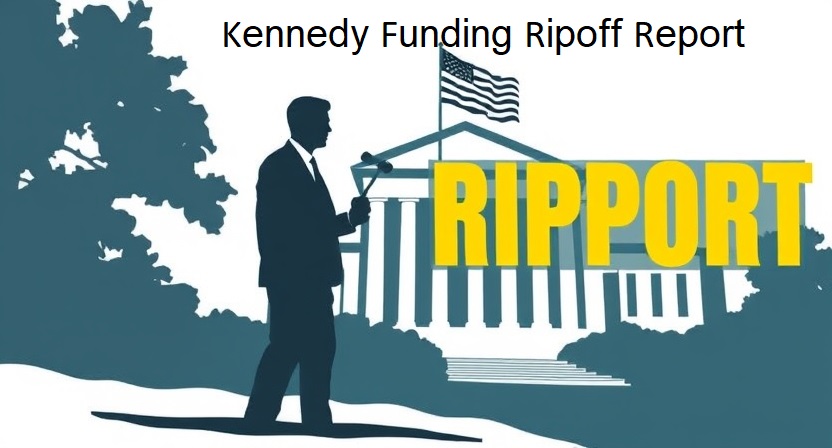Kennedy Funding Ripoff Report: A Comprehensive Analysis
trust is paramount. For borrowers seeking opportunities to secure large-scale loans, companies like Kennedy Funding International have long been a fixture. However, allegations and controversies, including references in the “Kennedy Funding Ripoff Report,” have raised questions about their practices. This article provides an in-depth analysis of these claims, evaluates the validity of the allegations, and offers practical advice for borrowers navigating such situations.
What is Kennedy Funding International?
Kennedy Funding International (KFI) is a direct private lender specializing in bridge loans for commercial real estate ventures. Their appeal lies in their ability to provide quick financing solutions, often in scenarios where traditional banks might decline applications. With a history of high-profile deals, KFI markets itself as a reliable partner for businesses and investors in need of urgent capital.
Services Offered by Kennedy Funding
- Bridge Loans: Short-term loans designed to “bridge” the gap between immediate financial needs and long-term solutions.
- International Lending: KFI caters to clients in various countries, adding a global dimension to their operations.
- Commercial Real Estate Financing: From land acquisition to construction and refinancing, KFI provides funding for diverse projects.
Despite their stated expertise, references to “Kennedy Funding Ripoff Report” suggest that some borrowers have had less-than-ideal experiences.
Understanding the “Kennedy Funding Ripoff Report”
The term “Ripoff Report” refers to an online consumer complaint platform where individuals can share grievances about businesses. Allegations against Kennedy Funding on this platform often revolve around claims of predatory practices, misleading terms, and unfulfilled promises. Let’s dissect these accusations and assess their credibility.
Common Complaints in the Ripoff Report
- High Upfront Fees:
- Borrowers have alleged that KFI demands substantial upfront fees without guaranteeing loan approval.
- In many cases, these fees are non-refundable, leaving borrowers out of pocket if their applications are declined.
- Unclear Terms and Conditions:
- Some customers report discovering hidden fees or ambiguous clauses in their contracts.
- Miscommunication or lack of transparency is a recurring theme in the complaints.
- Delayed Processing:
- While KFI markets itself as a quick lender, several reports claim significant delays in the loan disbursement process.
- Such delays can jeopardize time-sensitive projects.
- Unfulfilled Promises:
- A few borrowers allege that KFI provided verbal assurances that were later not honored in the final agreements.
Are the Ripoff Reports Credible?
When analyzing consumer complaints, it’s essential to differentiate between genuine grievances and exaggerated claims. While some Ripoff Report entries appear legitimate, others lack detailed evidence, raising questions about their authenticity.
Factors to Consider
- Consumer Bias:
- Frustrated borrowers may overstate issues, especially if their financial expectations were unmet.
- Not every complaint implies malicious intent by the lender.
- Company Response:
- Kennedy Funding has occasionally responded to allegations, attempting to clarify misunderstandings or rectify errors. This indicates a willingness to address concerns.
- Industry Practices:
- High upfront fees and stringent conditions are not uncommon in the private lending sector, which operates differently from traditional banks.
Balancing Perspectives
While Ripoff Reports can highlight genuine issues, they should be considered alongside other sources of feedback, including positive reviews, client testimonials, and industry ratings.
Practical Advice for Borrowers
For individuals or businesses considering a loan with Kennedy Funding or similar private lenders, due diligence is crucial. Here are some tips to ensure a safe borrowing experience:
1. Research the Lender Thoroughly
Before entering into any agreement, investigate the lender’s history, reputation, and client feedback. Look for patterns in complaints and positive reviews to form a balanced view.
2. Understand the Terms
Carefully review all loan documents, focusing on:
- Interest Rates: Ensure they are competitive and within industry norms.
- Fees: Confirm all costs, including application and processing fees, to avoid surprises.
- Repayment Terms: Understand the timeline and flexibility of repayments.
3. Seek Legal Advice
Engage a financial advisor or attorney to review the contract. Their expertise can help identify potential red flags and negotiate better terms if necessary.
4. Beware of Upfront Fees
While some fees are standard, excessive upfront charges without guarantees should raise caution. Confirm refund policies before making payments.
5. Check for Alternatives
Explore other lending options, such as:
- Traditional Banks: For lower interest rates and more structured terms.
- Peer-to-Peer Lending: An alternative with competitive rates and fewer bureaucratic hurdles.
Lessons from the Kennedy Funding Ripoff Report
The allegations against Kennedy Funding highlight the importance of vigilance in financial dealings. Borrowers can take several lessons from these reports to safeguard their interests:
Transparency is Key
Demand clear, written explanations for all terms, conditions, and fees. Avoid relying solely on verbal assurances.
Maintain Realistic Expectations
Private lenders operate under different constraints than banks. Understanding their limitations can prevent disappointment.
Stay Proactive
Monitor loan processing timelines closely and maintain open communication with the lender to address issues promptly.
Kennedy Funding: Strengths and Weaknesses
To offer a balanced view, it’s worth examining both the advantages and challenges of working with Kennedy Funding.
Strengths
- Flexibility:
- Willingness to fund unconventional or high-risk projects.
- Speed:
- Often faster than traditional banks in decision-making and fund disbursement.
- Global Reach:
- Capability to cater to international borrowers expands their appeal.
Weaknesses
- Cost:
- Higher fees and interest rates compared to conventional loans.
- Mixed Reviews:
- Polarizing feedback from clients makes it challenging to assess reliability.
- Transparency Concerns:
- Reports of unclear terms indicate room for improvement in communication.
Conclusion: Making Informed Decisions
While the Kennedy Funding Ripoff Report paints a concerning picture, it’s essential to approach such claims critically. Not all allegations reflect the complete truth, and many grievances stem from mismatched expectations rather than deliberate misconduct.
Borrowers must prioritize due diligence, seeking legal and financial advice before entering into agreements. By taking a proactive and informed approach, they can mitigate risks and identify the right financial partner for their needs.
When navigating private lending, awareness and preparation are your best tools for success.










Post Comment